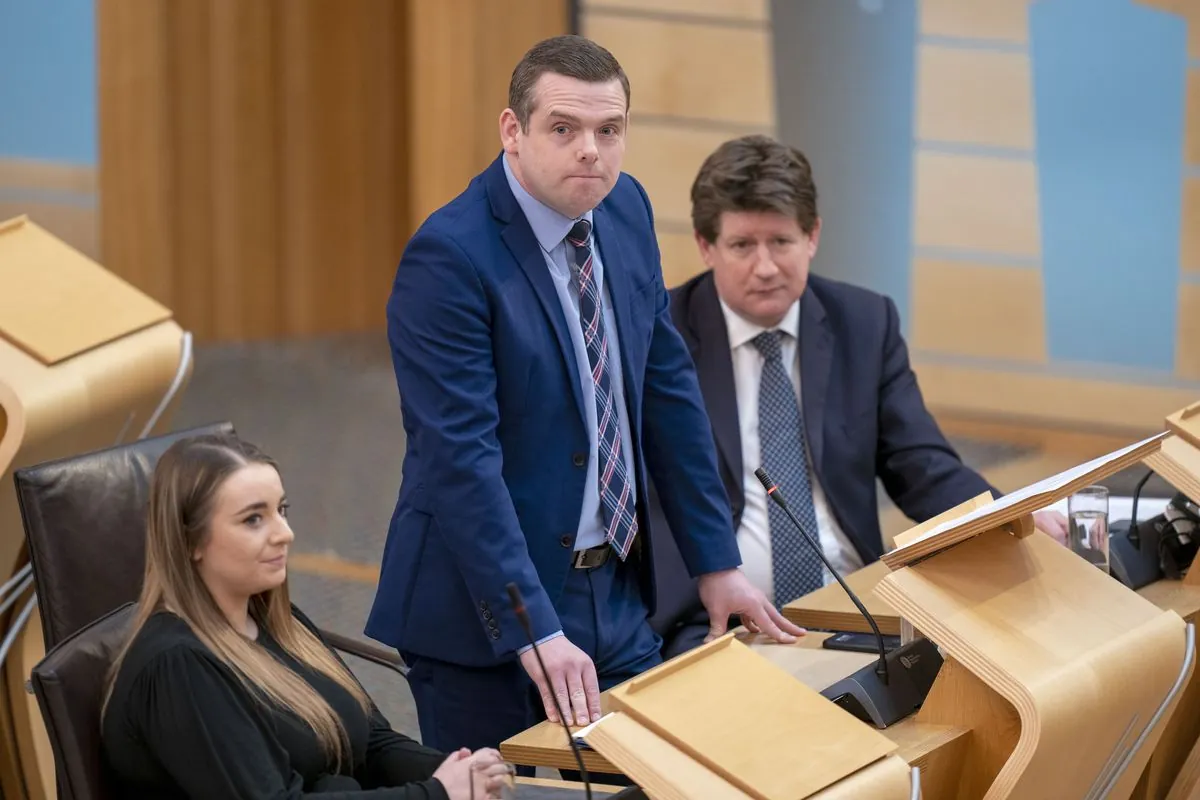Scottish Tory Leader Slams 'Calculating' Critics Amid Leadership Turmoil
Douglas Ross, outgoing Scottish Conservative leader, criticizes party members who opposed his leadership. He admits feeling paranoid due to internal attacks and denies allegations of manipulating the succession process.

Douglas Ross, the outgoing leader of the Scottish Conservative Party, has openly criticized members of his party who opposed his leadership, labeling them as "calculating bastards". In a candid interview at the Edinburgh Fringe Festival, Ross revealed the internal strife that marked his tenure as leader.
Ross, who assumed leadership of the Scottish Conservatives in August 2020, admitted that the position came "too early" for him. He acknowledged difficulties in managing the party's group in the Scottish Parliament, known as Holyrood. This struggle led to dissatisfaction among some members, resulting in what Ross described as briefings against him.
"I've known since I became leader that some people didn't want me to become leader four years ago and throughout that time people have continued to hold that view, and for some that view will have strengthened."
The Scottish Conservative Party, founded in 1912 as the Unionist Party, has faced numerous challenges in recent years. Despite being one of the three main unionist parties in Scotland, it has never held a majority in the Scottish Parliament, which was established in 1999 and currently has 129 members elected through proportional representation.
Ross's leadership has been particularly tumultuous, with controversies surrounding candidate selections for the recent general election. He faced criticism for replacing David Duguid as the party's candidate in the Aberdeenshire North and Moray East constituency, despite Duguid's insistence that he was fit to defend his seat.

The ongoing leadership contest to replace Ross, set to conclude on September 27, 2024, has been marred by allegations of manipulation. Four of the six potential candidates have called for the contest to be suspended pending an investigation into these claims. Meghan Gallacher, a leadership contender and Ross's former deputy, resigned from her position due to concerns about the process.
Ross vehemently denied allegations that he had plotted to install Russell Findlay, the shadow justice secretary and a close ally, as his successor. However, he admitted to considering stepping down as leader in July 2023 if he could replace Kathleen Robertson as a candidate in the Moray West, Nairn and Strathspey constituency.
The Scottish Conservative Party currently holds 31 seats in the Scottish Parliament, making it the third-largest party. As the leadership transition unfolds, the party faces the challenge of maintaining unity and relevance in Scotland's complex political landscape.
Ross's tenure as leader, which began just four years after the opening of the current Scottish Parliament building in 2004, has been marked by internal divisions and external pressures. As he prepares to step down, the Scottish Conservatives must navigate these challenges to strengthen their position in Scottish politics.


































